A QUIET, almost imperceptible crisis has gradually enveloped southern swimming and most within and without the swimming fraternity has failed to take note. This crisis seems to be deepening without any sign of abating with what has become a steady decline in the number of southern competitive swimmers and the disappearance of southern swimmers from the podiums at local meets.
For the sake of swimming in Saint Lucia, this crisis has to be tackled head-on and an open and frank discussion needs to commence at once with a view to halting the decline in southern swimming.
In addressing this crisis, lessons need to be drawn from the many successes of southern swimming since 2003 when the Southern Flying Fish Swim Club (SFF) was founded by a handful of parents at a meeting. Additionally, note has to be taken of southern swimming’s failures.
In addressing the crisis in southern swimming, each programme must define its aims and objectives. These may differ according to the outlook of the players in the individual programmes. It is this writer’s view that any successful swim programme in Saint Lucia, especially in the south, must have two aims: teaching all or most children and youngsters to swim and transitioning youngsters into competitive swimmers. If someone cannot swim, they cannot be a competitive swimmer and the more swimmers there are the more likely a swim programme will produce elite swimmers as competition will force swimmers to strive to become better swimmers.
There are numerous examples in the Caribbean, including some in Saint Lucia, where competitive swim programmes membership dwindle to less than ten fading into oblivion no matter how successful their swimmers are.
The first lesson to be learned is the need to emphasise technique among swimmers whether they be beginners, pre-competitive level or competitive swimmers. Between 2005 and 2007, the coaching staff of the SFF headed by Andy Edward and Sherma Bernard and several volunteer coaches concentrated on ensuring that their charges mastered technique, thus southern swimmers at the 2007 Primary School Swim Meet and the National Time Trials (now CapriSun Short Course Championships) despite entering meets for the first time did not struggle to complete their events.
Just as important was that at these meets in 2007 and afterwards southern swimmers frequented the podium several times. Not only did this emphasis on technique ensure good results in the pool despite the lack of water time due to the lack of pool facilities in the south, but also ensured that the danger of injuries was avoided.
It is clear that coaches and learn-to-swim coaches operating in the south today must redouble their efforts to master their craft in order to devise programmes that are such that they identify and harness the obvious talent that exists in the south. Presently, the southern swimmers are rarely seen on the podium at local meets much less at overseas meets which was the case in years gone by. Indeed, part of the success of the swim programmes led by Edward and supported by Bernard was the tireless work in devising swim programmes designed to fit into the realities of swimming in the south and not merely copying other programmes carte blanche.
A former U.S. Olympic swim coach once said, “It takes at least 10 years to develop a competent swim coach”. I should add it takes 10 years of hard consistent work. The lesson of the SFF and the Schools Swim Programme demonstrates that only by coaches being willing to burn the proverbial “midnight oil” will a champion swim programme develop in the south. This is even truer for any coach operating in the south where cognizance has to be taken of the lack of available water time for practice.
During what must now be viewed as the halcyon days of southern swimming between 2007 and 2012, when southern swimmers representing the Southern Flying Fish Swim Club (SFF) were to a large extent along with the Sharks Swim Club responsible for the re-invigoration of Saint Lucian swimming, the present state of southern swimming must be viewed as catastrophic.
[Read part two in the Weekend VOICE]


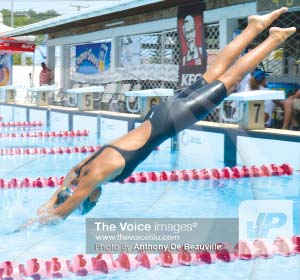
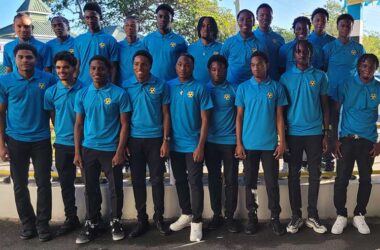
![MSS takes on VPSS in an action thriller [Photo credit: MYDS]](https://thevoiceslu.com/wp-content/uploads/2026/02/MSS-takes-on-VPSS-in-an-action-thriller-feat-380x250.jpg)
![Tapon House recorded its fourth consecutive title victory [Photo credit: MYDS]](https://thevoiceslu.com/wp-content/uploads/2026/02/Tapon-House-recorded-its-fourth-consecutive-title-victory-380x250.jpg)

![Julien Alfred, left, edges Jacious Spears to win the women’s 60 metres at the Tyson Invitational in Arkansas, USA on Friday [Photo credit: CMC]](https://thevoiceslu.com/wp-content/uploads/2026/02/Julien-alfred-1-380x250.jpg)
![Denver Alphonse Jr. [Photo Credit: ASC KCS]](https://thevoiceslu.com/wp-content/uploads/2026/02/Denver-Alphonse-Jr-feat-380x250.jpg)
![On field action in the Bay Bay Cup [Photo credit : MYDS]](https://thevoiceslu.com/wp-content/uploads/2026/02/On-field-action-in-the-Bay-Bay-Cup-feat-380x250.jpg)
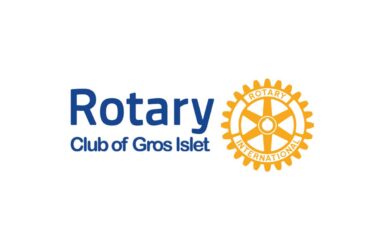
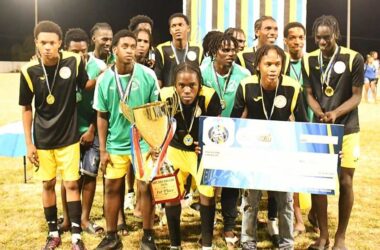
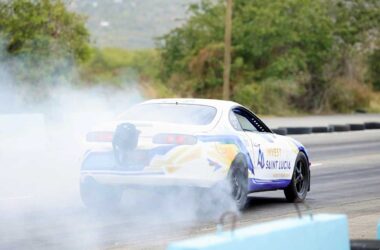
![VFCSS takes on BCSS in on court action at the BIF [Photo credit : MYDS]](https://thevoiceslu.com/wp-content/uploads/2026/02/VFCSS-takes-on-BCSS-380x250.jpg)
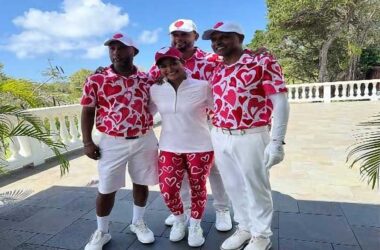
The heart of the problem is money! Some parents are barely able to make ends meet! Can you imagine adding the cost of learning to swim?
Money suddenly became a problem since 2012? Pain View have won the national primary schools competition more than once. They are landlocked and surely not the wealthiest of schools.